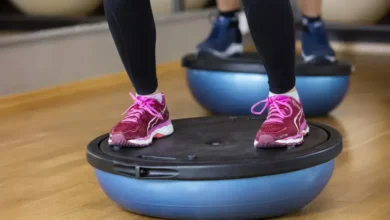Pregnancy Sleeping Positions: Which Ones to Avoid for a Safer Sleep?
Pregnancy is a beautiful, life-altering experience, but let’s be real, it can also be filled with its own share of sleepless nights. As your body changes to accommodate the life growing inside you, even something as simple as sleeping is a little more complicated. If you’re a pregnant mom, chances are you’ve been awake in bed, rolling and flopping over, trying to find a position that’s comfortable for you, as well as for your baby.
At LifeCell, we realise that every choice you make while you’re expecting is an expression of your love and concern for your child’s well-being. Just like selecting the correct pregnancy sleeping positions is one simple but effective way to support a healthy pregnancy, preserving your baby’s umbilical cord stem cells gives them a lifetime of health protection from the impact of 80+ medical conditions.
Consider stem cell banking while you figure out which sleeping positions should you shun—and why? In this article, you’ll find answers to all your questions
Why Do Pregnancy Sleeping Positions Matter?
During pregnancy, most of the normal symptoms can get in the way of getting a good night’s sleep. You can become queasy or vomit, especially in the first few months, and have to go to the bathroom more often. Your body might be uncomfortable with backache, sore breasts, or the big baby bump. As your baby gets more active, it can wake you up at night. Other issues like leg cramps, heartburn, and snoring can also disturb your sleep. You might experience mild, irregular contractions or feel breathless as your belly grows. Some women experience restless legs that make it hard to stay still, and it’s also common to feel anxious or worried about labor and delivery. Sleep problems like snoring or pauses in breathing—i.e., sleep-disordered breathing—during pregnancy may be intensified too.
Pregnancy Sleeping Positions To Avoid
There are certain sleeping positions that must be avoided during pregnancy. These include:
- Sleeping on your back: As your belly expands, sleeping on your back can compress major blood vessels. This can lead to back pain, shortness of breath, low blood pressure, and reduced blood flow to your baby. It can also lead to digestive issues and encourage snoring or sleep apnea.2
- Stomach sleeping: This is less comfortable as your belly grows and your breasts become more sensitive. A few women find relief with a donut-shaped pillow with a hole in the middle for a short time, but stomach sleeping is not recommended later in pregnancy.
Tips For Pregnancy Sleeping Positions
Here are some recommendations to keep in mind for sleeping during pregnancy.
- Put pillows under your back to discourage you from rolling onto it. It might not stop you from doing it entirely, but it can make sleeping on your back uncomfortable, so you will prefer sleeping on your side.
- Hold your hair back in a low bun if it’s long. This can make sleeping on your back uncomfortable for a long time.
- Should you wake up in the middle of the night, check your position again and roll over onto your side before returning to sleep again.
- If you take naps during the day, try sleeping on your side during the day as well, just like at night.
In Conclusion
Sleep matters when you are pregnant—for your energy, your mood, and the healthy development of your baby. Even if your growing tummy makes it harder to find a comfortable way to sleep, sleeping on your side is the safest way to do it, especially after 28 weeks. If you wake up facing the back, don’t stress—just roll onto your side and continue to sleep.
Pregnant health also involves having foresight for your child’s future. Along with good sleeping habits, most expectant parents now are also banking their baby’s stem cells at birth. Companies like LifeCell provide stem cell banking services that collect and preserve these valuable cells from the umbilical cord at birth. These stem cells have the potential to treat various diseases and may offer your child access to advanced medical stem cell treatments in the future.
By paying attention to your pregnancy sleeping positions and exploring options like stem cell banking, you’re making informed decisions that help protect your own health and your baby’s health today, tomorrow, and beyond. Pregnancy is a special experience, and with good guidance and care, you can conquer it in your stride without being swayed by fears or worries.




